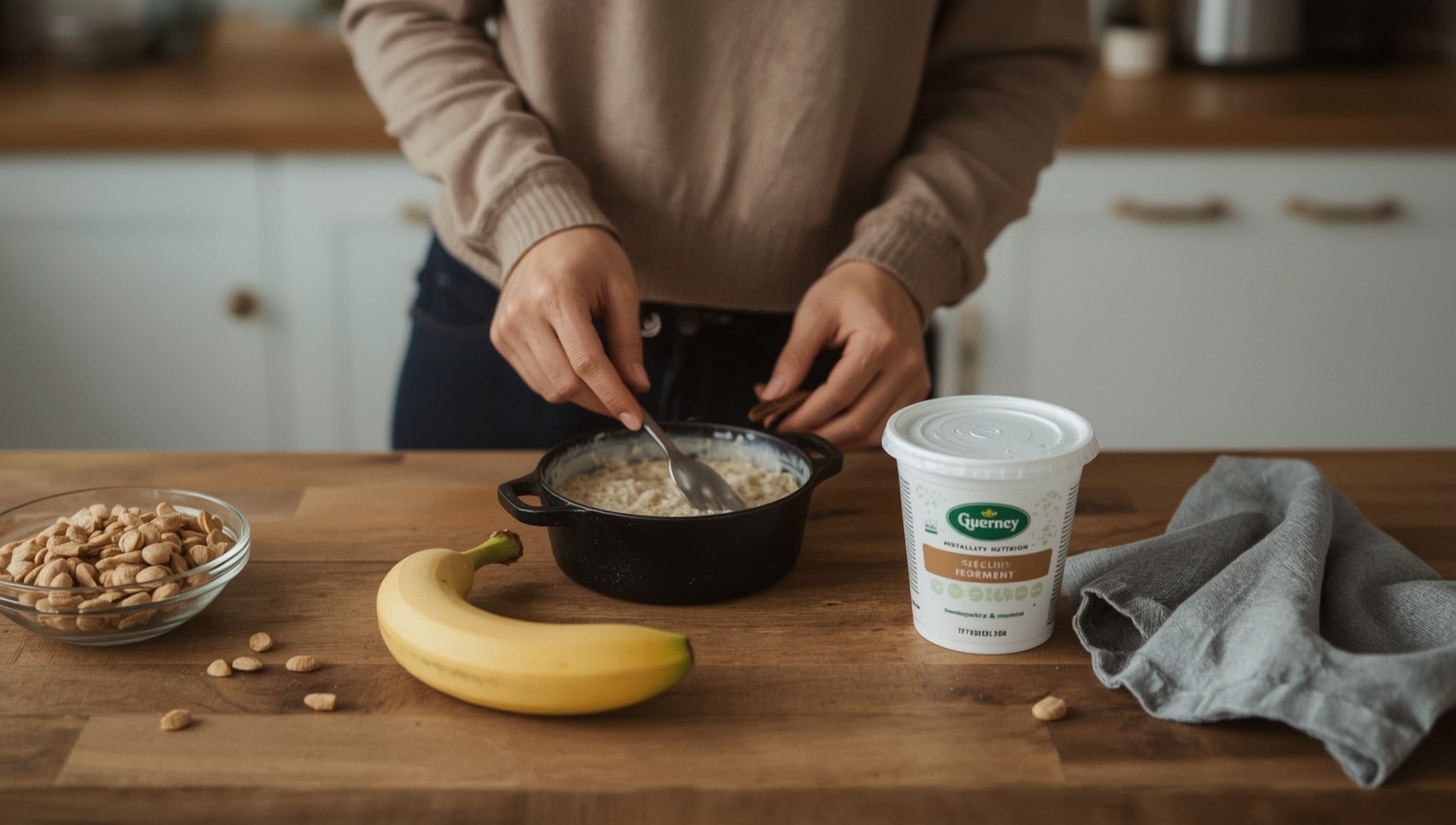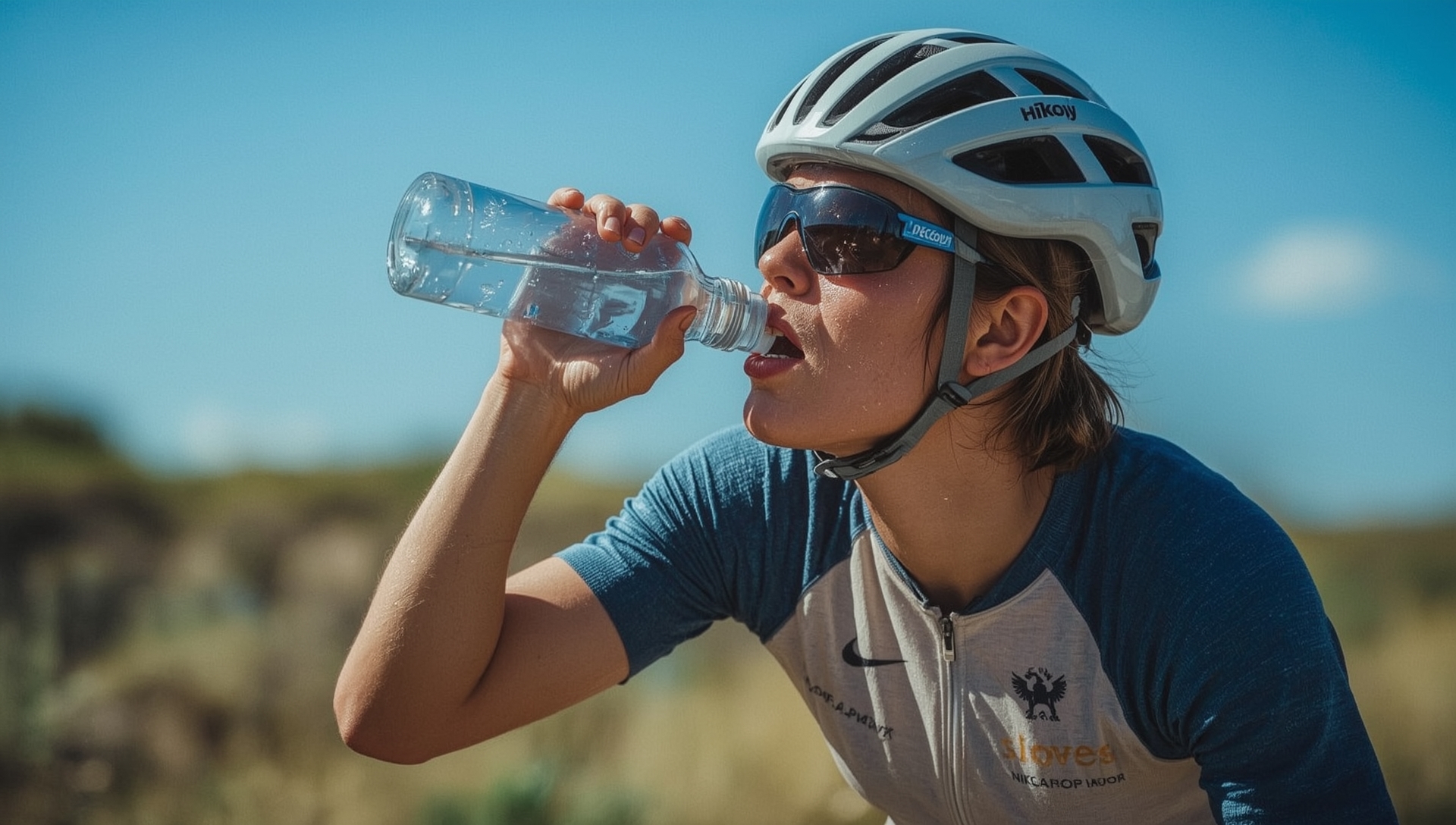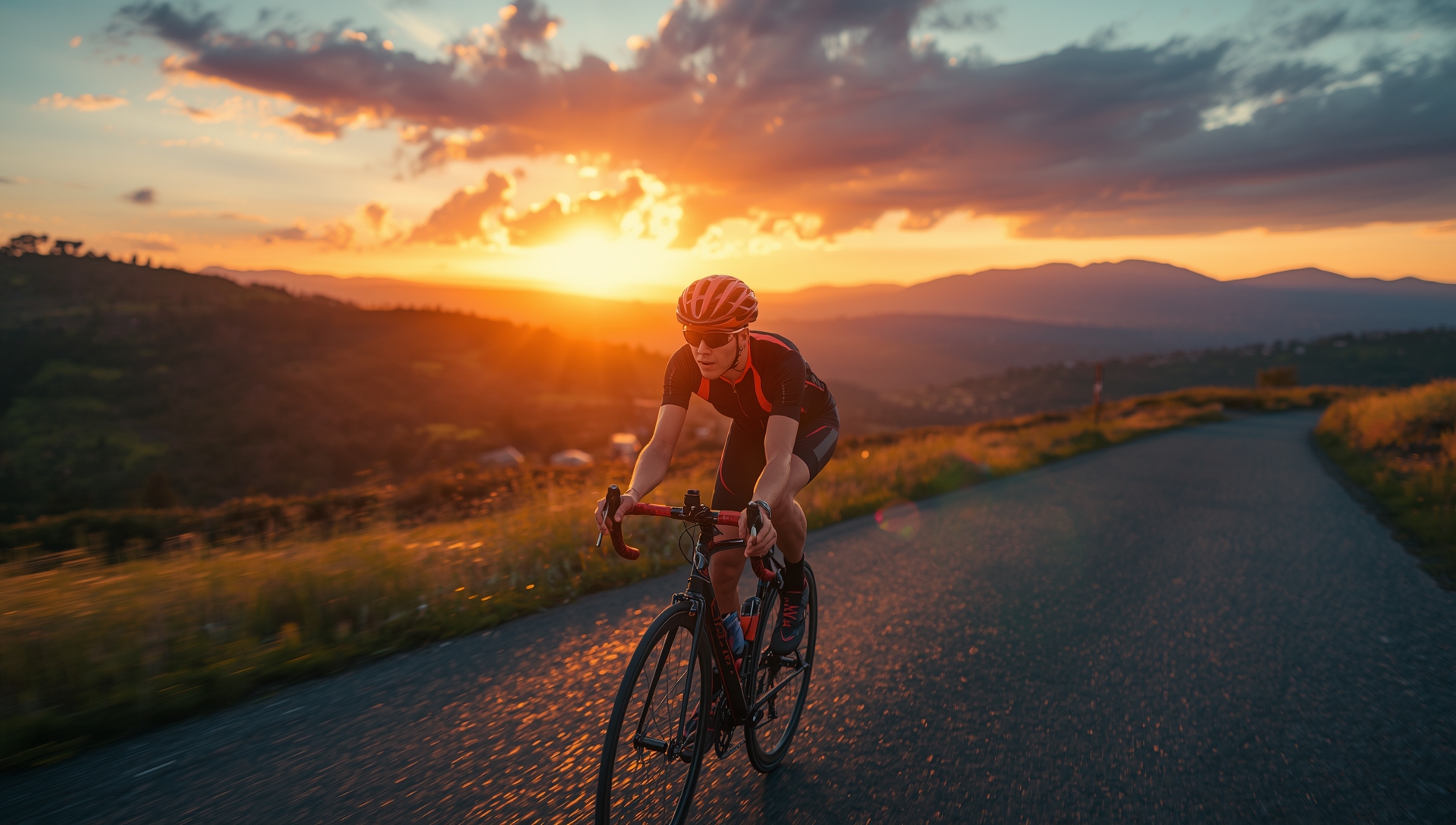The 7 Most Common Cycling Nutrition
Mistakes That Are Sabotaging Your Performance
Why Cycling Nutrition Matters More Than You Think
Before diving into the mistakes, it’s crucial to understand just how much nutrition impacts your cycling performance. Recent research published in the British Journal of Nutrition found that cyclists who properly implemented carbohydrate strategies during indoor training sessions showed significantly better power output maintenance compared to those who didn’t.
As sports nutritionist Jill Mooney puts it: “You need to be a healthy person before you can be a high-performing athlete and, you know, there’s no hack around that.” This foundation principle guides everything that follows.

Mistake #1: Skipping Pre-Ride Nutrition Planning
The biggest mistake many cyclists make is treating pre-ride nutrition as an afterthought. You wouldn’t show up to a group ride without checking your tire pressure, so why would you fuel your engine randomly?
The Science Behind Pre-Ride Fueling
Your muscle glycogen stores are finite – typically enough for 90-120 minutes of moderate-intensity cycling. Studies on professional cyclists during multi-day competitions show that starting each stage with optimal glycogen levels is crucial for maintaining performance throughout the event.
What To Do Instead
Plan your pre-ride meal 2-4 hours before riding, focusing on:
- Complex carbohydrates: Oatmeal, whole grain toast, or rice
- Moderate protein: Greek yogurt, eggs, or lean meat
- Minimal fat and fiber: These slow digestion when you need quick energy access
For rides longer than 90 minutes, consume 30-60g of easily digestible carbohydrates 15-30 minutes before starting. Think banana, sports drink, or energy bar.
The key is consistency. Successful cyclists develop pre-ride nutrition routines and stick to them, avoiding the temptation to try something new on important ride days.

Mistake #2: Inadequate Hydration Strategies
Dehydration is performance kryptonite, yet many cyclists still rely on thirst as their hydration guide. By the time you feel thirsty, you’re already behind the curve.
Understanding Fluid Needs
Research indicates that cyclists can lose 1-3 liters of fluid per hour during intense exercise, depending on environmental conditions and individual sweat rates. Even a 2% drop in body weight from fluid loss can decrease performance by 10-15%.
Creating Your Hydration Protocol
Start hydrating 2-3 hours before your ride with 400-600ml of fluid. During the ride, aim for 150-250ml every 15-20 minutes – that’s roughly one standard water bottle per hour for moderate efforts.
For rides exceeding 60 minutes, especially in hot conditions, plain water isn’t enough. You need electrolyte replacement to maintain proper muscle function and prevent cramping. Sports drinks containing 6-8% carbohydrate solution serve double duty, providing both hydration and energy.
Monitor your hydration status by checking urine color – pale yellow indicates proper hydration, while dark yellow suggests you need more fluids.

Mistake #3: Ignoring Post-Ride Recovery Nutrition
The “training done, grab a beer” mentality misses a crucial performance opportunity. The 30-60 minutes after finishing your ride represents a golden window for recovery optimization.
The Recovery Window Science
Studies on endurance athletes demonstrate that consuming the right nutrients immediately post-exercise accelerates glycogen replenishment, reduces muscle protein breakdown, and enhances adaptation to training stress.
Optimal Recovery Formula
Within 30 minutes of finishing your ride, consume:
- Carbohydrates: 1-1.2g per kg of bodyweight (for a 70kg cyclist, that’s 70-84g)
- Protein: 15-25g of high-quality protein to stimulate muscle protein synthesis
- Fluids: Replace 150% of fluid lost during exercise
Practical options include chocolate milk, protein smoothies with fruit, or a recovery drink paired with a sandwich. The key is having your recovery nutrition planned and ready – waiting until you’re home and showered often means missing the optimal window.
Mistake #4: Carbohydrate Confusion During Long Rides
Many cyclists either under-fuel or over-complicate their in-ride nutrition strategy. The result? Bonking on long rides or dealing with gastrointestinal distress from poor fueling choices.
Getting Carbohydrate Intake Right
For rides lasting longer than 90 minutes, aim for 30-60g of carbohydrates per hour. For very long efforts (3+ hours), this can increase to 60-90g per hour, but only if your gut can handle it.
The type of carbohydrate matters too. Research from the Australian Institute of Sport shows that combining glucose and fructose sources (like sports drinks mixed with bananas) can increase carbohydrate absorption rates compared to single-source sugars.
Practical Implementation
Start fueling early – don’t wait until you feel hungry or low on energy. Begin consuming carbohydrates within the first 30 minutes of rides longer than 90 minutes, then maintain steady intake throughout.
Practice your fueling strategy during training rides. What works during a casual weekend spin might not sit well during high-intensity efforts. Gradually train your gut to handle your target intake rates.
Mistake #5: Supplement Overload Without Basic Foundation
Walk into any bike shop and you’ll see walls of supplements promising miraculous performance gains. Many cyclists get seduced by these marketing claims while neglecting fundamental nutrition principles.
The Supplement Reality Check
Recent systematic reviews of nutritional ergogenic aids in cycling show that only a handful of supplements have strong scientific support: caffeine, creatine (for sprint events), sodium bicarbonate, beta-alanine, nitrates, and glycerol.
Even these proven supplements provide minimal benefit – typically 1-5% performance improvements – and only when basic nutrition is already optimized.
Focus on Fundamentals First
Before considering any supplements, ensure you’re consistently:
- Meeting your daily caloric needs
- Consuming adequate carbohydrates for your training load
- Getting sufficient protein for recovery (1.2-1.7g per kg bodyweight)
- Staying properly hydrated
- Eating a variety of whole foods for micronutrient needs
Once these fundamentals are locked in, then consider evidence-based supplements that align with your specific performance goals.
Mistake #6: One-Size-Fits-All Nutrition Approach
Cycling magazines and websites are full of general nutrition advice, but what works for one cyclist might be completely wrong for another. Individual factors like body size, training intensity, environmental conditions, and metabolic differences all influence optimal nutrition strategies.
Personalizing Your Approach
Research on recreational cyclists and triathletes reveals significant individual variations in dietary needs and supplement responses. What matters most is finding what works for your unique situation.
Consider factors like:
- Training volume and intensity: Higher training loads require more carbohydrates and calories
- Body composition goals: Weight loss requires different strategies than performance optimization
- Environmental conditions: Hot weather increases fluid and electrolyte needs
- Digestive tolerance: Some people handle certain foods better than others during exercise
Finding Your Formula
Keep a nutrition and performance log to identify patterns. Note what you eat, when you eat it, and how you feel during rides. Over time, you’ll identify your personal optimal strategies.
Don’t be afraid to experiment during training rides, but stick to proven strategies on important event days. Consistency in nutrition, like training, produces the best long-term results.
Mistake #7: Ignoring the Mental Side of Nutrition
Nutrition isn’t just about physical fuel – it’s also about confidence and mental performance. Many cyclists create unnecessary stress around eating, turning nutrition into a source of anxiety rather than performance enhancement.
The Psychology of Fueling
Overthinking nutrition can be as detrimental as under-fueling. Some cyclists become so focused on perfect nutrition that they lose sight of the bigger picture: consistent, adequate fueling over time matters more than perfection in any single meal or ride.
Developing a Healthy Relationship with Food
View food as fuel and recovery, not just calories to be restricted. This is especially important for cyclists trying to lose weight while maintaining performance. Extreme calorie restriction often backfires, leading to poor performance, increased injury risk, and metabolic adaptations that make weight loss harder.
Focus on eating to support your training and recovery needs. When nutrition supports your goals rather than working against them, both performance and enjoyment improve.
Putting It All Together: Your Action Plan
Now that you understand the common mistakes, here’s how to implement better nutrition strategies:
Week 1-2: Assessment and Planning
- Track your current eating patterns for one week
- Calculate your daily caloric and carbohydrate needs based on training load
- Plan pre-ride, during-ride, and post-ride nutrition strategies
- Stock up on appropriate foods and sports nutrition products
Week 3-4: Implementation
- Begin practicing your new nutrition strategies during training rides
- Pay attention to how different foods and timing affect your performance
- Adjust portions and timing based on your responses
- Start building consistent routines around key meals and ride nutrition
Week 5-8: Optimization
- Fine-tune your strategies based on what you’ve learned
- Test your nutrition plan during longer or more intense training sessions
- Build confidence in your nutrition approach before important events
- Continue monitoring and adjusting as needed
The Bottom Line
Optimal cycling nutrition isn’t about following the latest fad or copying what professional cyclists do. It’s about understanding your individual needs, implementing evidence-based strategies consistently, and avoiding the common mistakes that limit performance.
Remember that nutrition is a skill like bike handling or pacing – it improves with practice and attention. Start with the basics, be consistent, and gradually refine your approach based on your responses and goals.
The investment in proper nutrition pays dividends not just in performance, but in how you feel during and after rides. When you fuel your body properly, cycling becomes more enjoyable, recovery improves, and your potential on the bike increases significantly.
Frequently Asked Questions
What are the most common cycling nutrition mistakes that riders make?
Many cyclists fall into common nutrition mistakes that can sabotage their performance. These include not consuming enough carbs for energy, failing to hydrate properly, and overlooking the importance of pre- and post-ride nutrition. Each of these mistakes can affect a cyclist’s ability to perform at their best during training and races.
How can overtraining lead to mistakes in nutrition for cyclists?
Overtraining can lead to a cycle of poor nutrition habits, as cyclists may neglect their dietary needs when feeling fatigued. This can result in mistakes like not consuming enough calories or skipping meals, which ultimately hampers recovery and performance. It’s crucial for cyclists to listen to their bodies and adjust their nutrition accordingly to avoid these pitfalls.
What hydration mistakes do cyclists often make on race day?
On race day, many cyclists make the mistake of not drinking enough water or electrolyte-rich fluids. This can lead to decreased performance and increased risk of dehydration. It’s important for cyclists to have a hydration plan that includes regular intake of fluids before, during, and after their races to maintain optimal performance levels.
How does carbohydrate intake affect a cyclist’s performance?
Carbohydrates are a primary energy source for cyclists and failure to consume an adequate amount can lead to poor performance. Many cyclists underestimate their carb needs, especially on longer rides or during intense training sessions. Ensuring a proper carbohydrate intake is essential for sustaining energy levels and optimizing calorie burn during workouts.
What are some common nutrition mistakes made by triathletes?
Triathletes often make nutrition mistakes such as not practicing race-day nutrition during training, which can lead to gastrointestinal distress. Additionally, they may overlook the balance of proteins, fats, and carbs in their diet or fail to account for the higher calorie demands of training across multiple disciplines. A well-structured nutrition plan is vital for triathlon success.
Why is it important to avoid the misuse of supplements in cycling?
Many cyclists turn to supplements in hopes of enhancing their performance but often misuse them, leading to negative effects. Over-reliance on supplements can cause imbalances in nutrition and may not provide the intended benefits. It’s essential to focus on whole foods that offer the nutritional value needed for optimal cycling performance.
What are the effects of poor training habits on a cyclist’s nutrition?
Poor training habits can lead to inadequate nutrition, as cyclists may not fuel properly for their workouts. This can create a cycle of fatigue and underperformance. Establishing consistent training habits, coupled with a solid nutrition plan, can help cyclists meet their cycling goals effectively.
How can a coach help cyclists avoid common nutrition mistakes?
An experienced coach can provide valuable insights into proper nutrition tailored to individual cycling needs. They can help cyclists develop a nutrition plan that includes macro balance, hydration strategies, and race-day fueling techniques, ultimately helping to avoid common mistakes that could sabotage their performance.
How can cyclists ensure they are drinking enough during hot rides?
During hot rides, cyclists should be proactive about hydration by setting a schedule for drinking fluids. A good rule of thumb is to drink regularly, even if not thirsty, and to include electrolyte-rich beverages to replenish lost minerals. This helps to prevent dehydration and maintain optimal heart rate during intense efforts.
